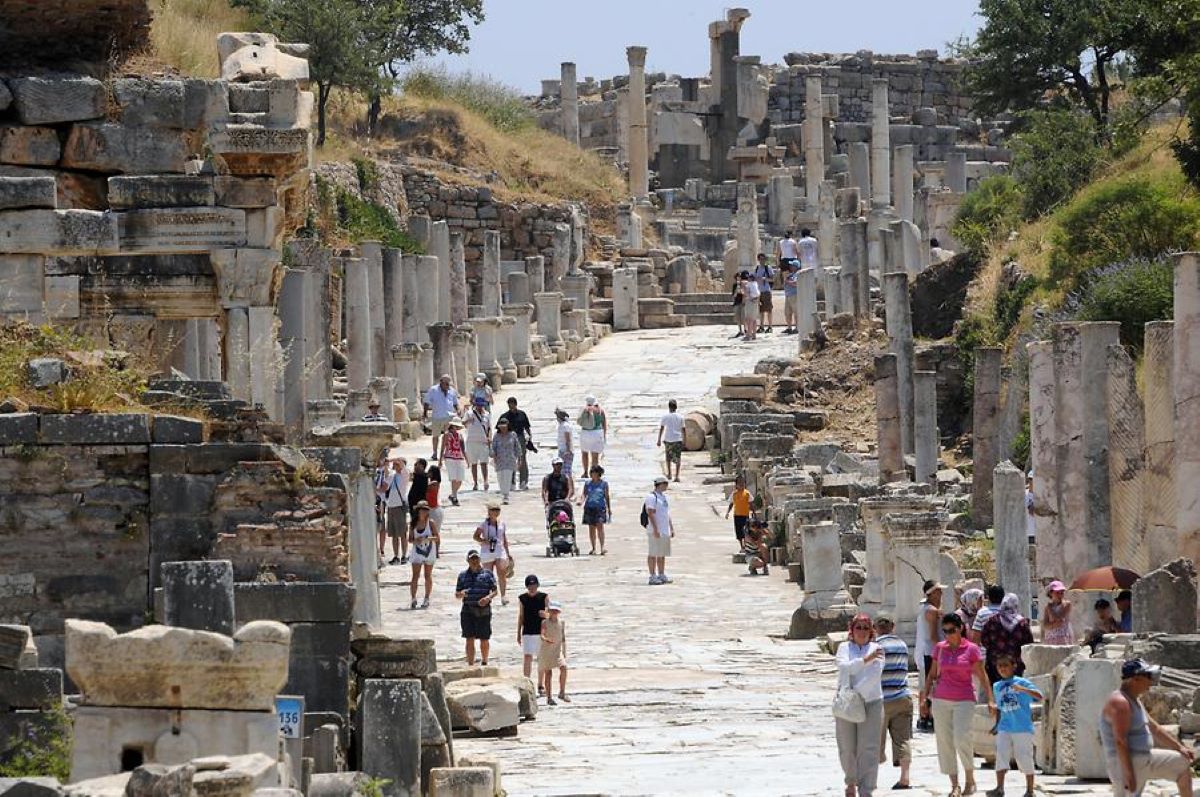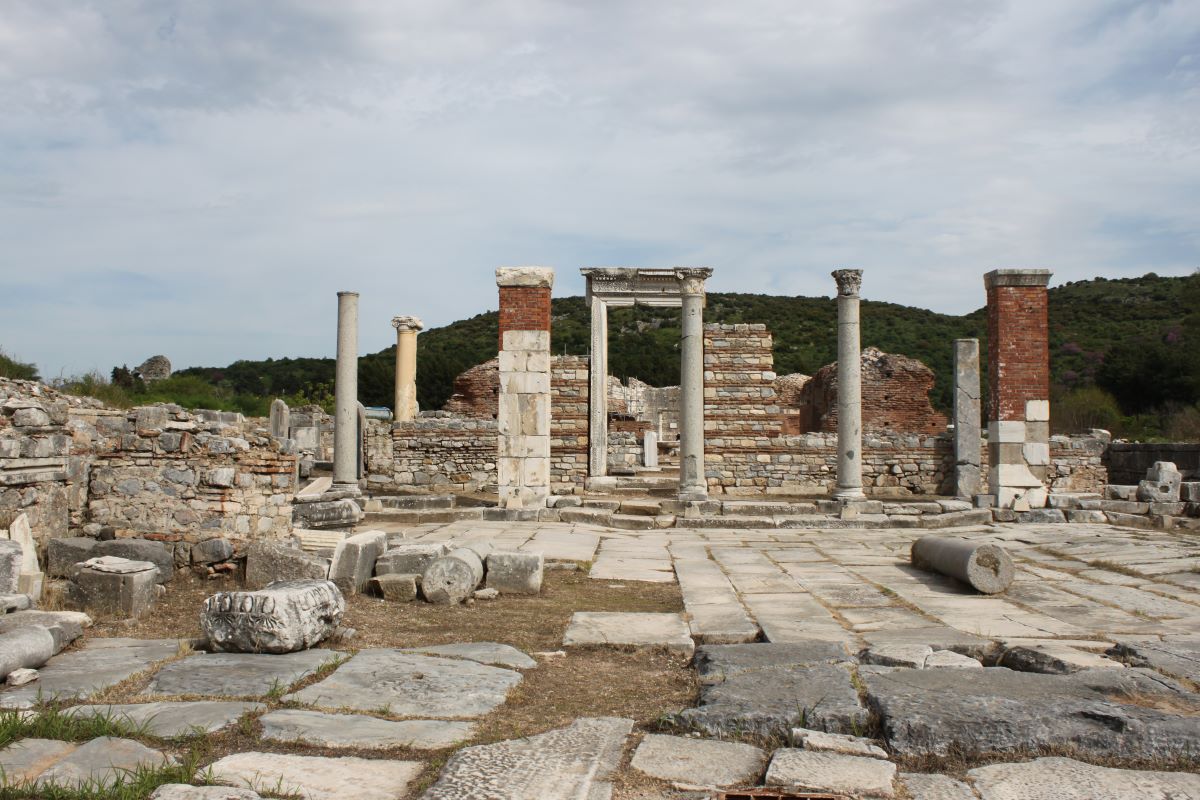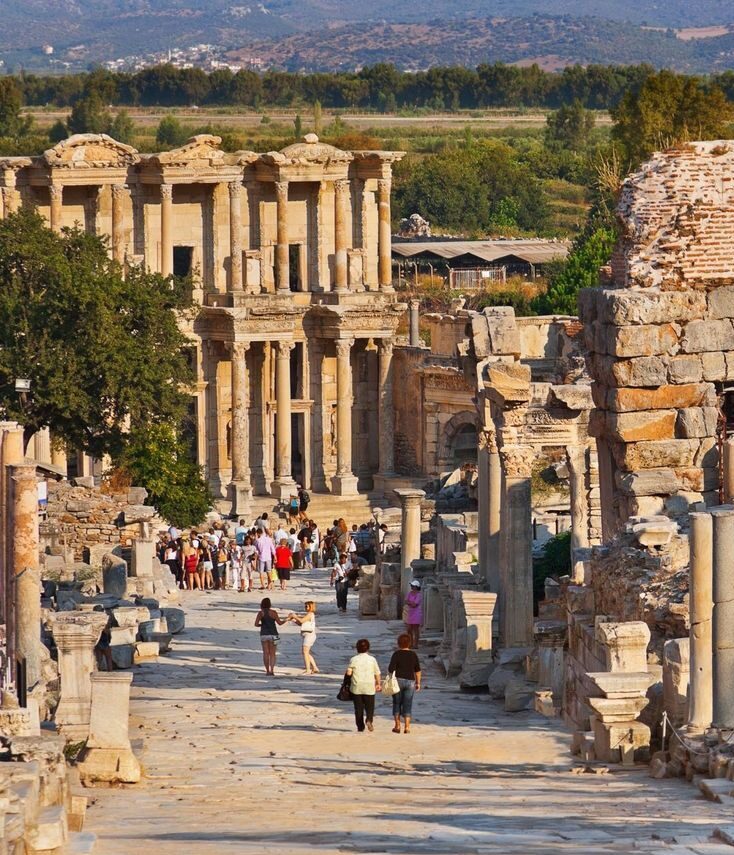The ancient city of Ephesus is a site of remarkable historical significance, with a…

St. Paul in Ephesus: A Journey Through the Biblical Past
The city of Ephesus is a place of great significance in the Bible, as it was the setting for one of the most important missionary journeys of St. Paul. Ephesus was a bustling city and a center of trade, culture, and religion in the ancient world. During his time there, St. Paul made a significant impact on the city and its people. His experiences in Ephesus are chronicled in the New Testament, and they offer a fascinating glimpse into the early Christian Church and its struggles and triumphs. In this article, we will journey through the biblical past and delve into the fascinating story of St. Paul in Ephesus.
St. Paul’s arrival in Ephesus in 52 AD marked a significant moment in the history of this prosperous city, which had a long and storied past. Ephesus was renowned for its temple of Artemis, considered one of the Seven Wonders of the Ancient World, and was a hub for trade, religion, and culture. With its diverse population of Jews, Greeks, and Romans, Ephesus was a melting pot of cultures, making it an ideal destination for Paul’s missionary work.
As a major center of learning and commerce, Ephesus boasted a sophisticated urban infrastructure, including magnificent buildings, public squares, and bustling markets. At the same time, the city was a hotbed of religious activity, with a plethora of temples, shrines, and sacred spaces. Against this backdrop, Paul’s message of salvation and redemption through Christ had a profound impact on the people of Ephesus, attracting both converts and skeptics alike.
Paul’s time in Ephesus represents a fascinating chapter in the Biblical past, offering a window into the vibrant cultural and religious landscape of the ancient world.
During his time in Ephesus, St. Paul’s ministry flourished as he continued to spread his teachings throughout the city. His initial resistance in the synagogue did not deter him, and he persevered, gaining a significant following among both Jews and Gentiles. St. Paul’s teachings emphasized love, forgiveness, and the importance of living a righteous life.
The “Sons of Sceva” incident is a testament to St. Paul’s miraculous abilities, which helped to establish his reputation as a powerful and authoritative figure. His exorcism of the possessed man was witnessed by many, and it is said that his miraculous acts brought many people to faith.
St. Paul’s dispute with the silversmiths highlights the challenges he faced in spreading his message in a culture that was heavily steeped in pagan worship. The silversmiths were outraged that St. Paul’s teachings threatened their business of crafting idols of Artemis. The resulting riot underscores the strong emotions and tensions that were present in the city at the time.
Despite the obstacles he faced, St. Paul persevered, and his teachings ultimately prevailed. He established a strong Christian community in Ephesus, and his legacy continues to inspire millions of people around the world today.
St. Paul’s time in Ephesus left a profound and lasting impact on the city and its people. His teachings and the community he established continued to thrive long after his departure, and he is regarded as one of the most influential figures in the history of Christianity. The Church of Ephesus, which was established by St. Paul, became one of the seven churches mentioned in the Book of Revelation, and was praised for its perseverance and dedication to the faith. St. Paul’s teachings on the gospel and the nature of Christ were instrumental in shaping the early Christian church, and his influence can still be felt today. St. Paul’s legacy is one of steadfast faith and unwavering dedication to spreading the message of Christianity, and his impact on the world cannot be overstated.
In conclusion, St. Paul’s journey through Ephesus remains a remarkable example of how the message of love and hope can transform lives and communities. His teachings brought a new perspective to the people of Ephesus, who were struggling to find meaning and purpose in their lives. Through his relentless dedication and perseverance, St. Paul left an indelible mark on the city’s history and its people’s hearts.
Despite facing numerous challenges and obstacles, St. Paul’s unwavering commitment to his faith and his message of love prevailed. Today, visitors to Ephesus can still witness the physical remnants of St. Paul’s ministry and his impact on the city. More importantly, his legacy continues to inspire countless people around the world to pursue their dreams and to live with faith, hope, and love.
St. Paul’s journey through Ephesus is a powerful reminder that one person can make a difference in the world. His story serves as an enduring testament to the resilience of the human spirit and the transformative power of faith.




This Post Has 0 Comments